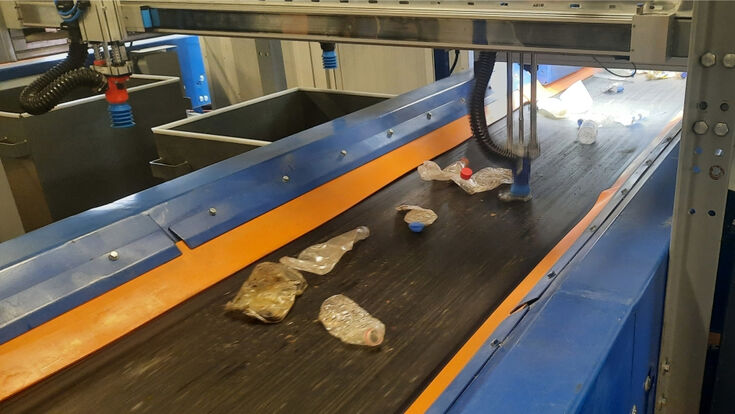Maximizing Industrial Waste Water Treatment Effectiveness with Reclaim Waste Melbourne
Maximizing Industrial Waste Water Treatment Effectiveness with Reclaim Waste Melbourne
Blog Article
The Crucial Duty of Appropriate Fluid Waste Elimination Techniques in Waste Monitoring
In the realm of waste administration, the importance of utilizing appropriate liquid waste elimination approaches can not be overemphasized. The intricate internet of interconnected ecological, wellness, and safety and security considerations pivots on the reliable administration of fluid waste. From guarding our communities versus contamination to maintaining public health requirements, the proper disposal of fluid waste plays an essential role in keeping a lasting and healthy atmosphere. This essential role extends past plain waste elimination, impacting a multitude of industries and elements of our daily lives. It is within this structure that the implementation of sound liquid waste elimination methods stands as a keystone of responsible waste administration methods.
Significance of Appropriate Liquid Waste Elimination
Why is correct liquid waste elimination crucial in preserving environmental and public wellness requirements? Appropriate fluid waste elimination is essential for guarding the atmosphere and upholding public health requirements. Reclaim Waste liquid waste removal. Liquid waste, otherwise managed correctly, can position major risks to ecological communities, water sources, and human health and wellness. Inappropriate disposal of fluid waste can result in contamination of groundwater, surface area water, and dirt, causing harm to marine life, plants, and possibly threatening human populaces.
Environmental Advantages of Efficient Methods
Implementing reliable liquid waste removal techniques not only safeguards the setting but additionally plays a vital function in keeping public health and wellness standards. Incorrect disposal of liquid waste can lead to contaminants permeating into the dirt and at some point reaching groundwater reservoirs, impacting both human health and wellness and ecosystems.
In addition, reliable fluid waste removal techniques assist alleviate the risk of waterborne diseases. Harmful chemicals in liquid waste can have damaging effects on aquatic and freshwater organisms, disrupting communities and biodiversity.
Wellness Implications of Inadequate Removal
The damaging wellness ramifications related to poor fluid waste removal emphasize the essential importance of appropriate disposal methods and efficient administration techniques. Improper elimination of liquid waste can lead to the contamination of water resources, posturing severe wellness risks to both people and wild animals. When liquid waste consisting of harmful chemicals, microorganisms, or various other pollutants is not adequately eliminated and dealt with, it can leak right into groundwater, rivers, and seas, endangering the top quality of drinking water and marine ecosystems.
Direct exposure to infected water due to poor fluid waste elimination can result in different health issue, including gastrointestinal illnesses, skin infections, breathing problems, and even a lot more extreme problems such as organ damage this article or neurological problems. Additionally, the release of unattended liquid waste into the atmosphere can contribute to the spread of waterborne diseases, producing public wellness crises that need substantial resources to resolve.
Consequently, carrying out correct fluid waste elimination methods is vital to safeguarding public health and protecting the stability of ecosystems. Reclaim Waste Melbourne. By focusing on reliable waste administration practices, we can reduce the health and wellness risks connected with inadequate fluid waste elimination and promote a much healthier environment for all
Duty in Stopping Water Contamination
Efficient fluid waste removal techniques play a vital duty in preventing find out water contamination and protecting public wellness. Inappropriate disposal of fluid waste, such as unattended sewage or commercial effluents, can result in the contamination of water resources, posing significant dangers to human wellness and the setting. When fluid waste is not appropriately removed and treated, damaging substances can leak into groundwater, rivers, and seas, contaminating drinking water products and marine ecosystems.
Infected water can lug a series of toxins, consisting of microorganisms, hefty metals, and chemicals, that have the potential to cause waterborne conditions, ecological damage, and lasting wellness effects in humans and wildlife. Proper liquid waste elimination strategies, such as wastewater therapy plants, septic tanks, and industrial effluent treatment facilities, are necessary for getting rid of or counteracting damaging contaminants before they can get in water bodies.
Making Sure Safe Disposal Practices
Making sure proper disposal practices for fluid waste is important to secure water sources and public health and wellness from contamination risks. Safe disposal practices entail adhering to standards and regulations set forth by ecological firms to reduce the effect of liquid waste on the atmosphere. Proper control and storage of fluid waste are additional reading essential to avoid leakages or spills that might leak into the dirt and infect groundwater resources. Applying effective therapy approaches, such as filtering or chemical processes, prior to disposal can also significantly minimize the dangerous results of fluid waste on the atmosphere.

Conclusion
In verdict, appropriate liquid waste elimination strategies play an essential role in waste monitoring by protecting against ecological contamination and securing public wellness. Efficient removal approaches make sure the risk-free disposal of fluid waste, minimizing the negative effect on environments and water resources. It is important for markets and people to embrace responsible methods to mitigate the dangerous impacts of inappropriate fluid garbage disposal.
In the realm of waste administration, the significance of using suitable liquid waste removal techniques can not be overemphasized. It is within this structure that the execution of sound fluid waste removal methods stands as a keystone of liable waste monitoring practices.

Report this page